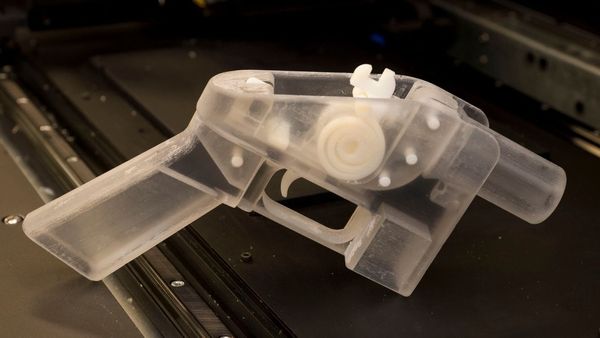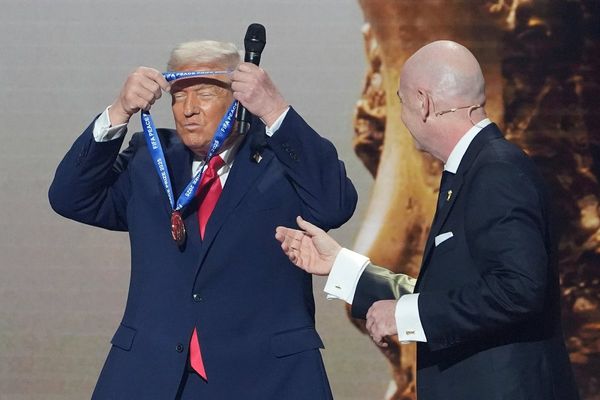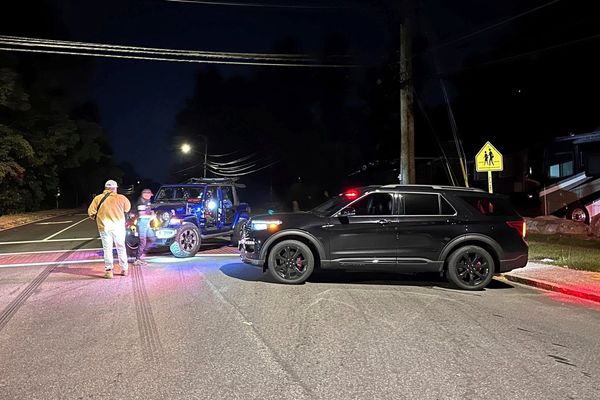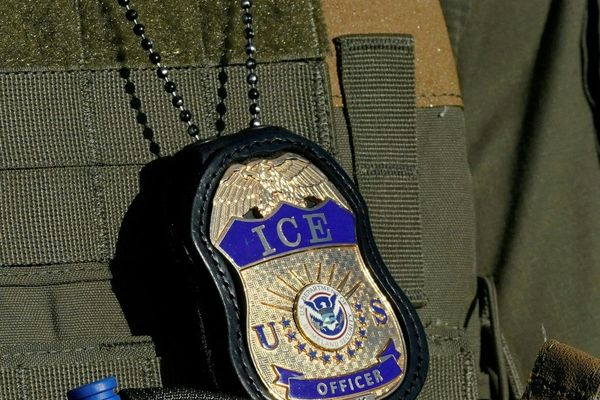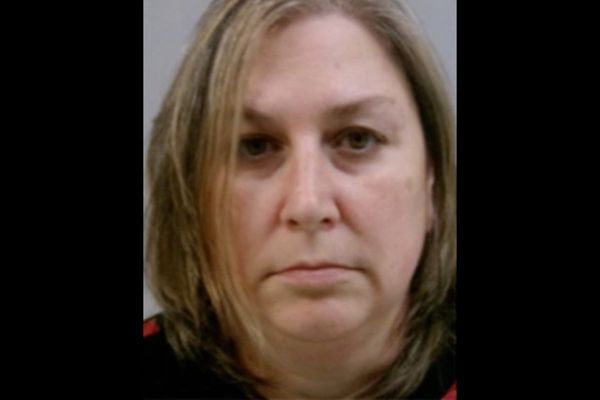United Nations aid agencies have released figures showing the impact of the war in Ukraine to mark 100 days since the Russian invasion began.
It comes as Russian President Vladimir Putin met the head of the African Union to discuss the emerging global food crisis exacerbated by the conflict.
UN crisis coordinator Amin Awad said at least 15.7 million people in Ukraine were now in urgent need of assistance and protection, with the number rising by the day.
When winter comes, millions of people will be exposed given the destruction of power plants and fuel depots, Mr Awad told an online media briefing.
Nearly 14 million people — a third of the population — had been forced to flee the fighting, and another 15 to 16 million stayed home but had lost their livelihoods, he said.
Nearly five million children have had their education suspended.
The UN Human Rights agency reported 9,197 civilian casualties — 4,183 killed and 5,014 injured — but these only include those which can be confirmed under a strict verification process.
There have been 269 attacks on healthcare facilities — killing at least 76 people, according to the World Health Organization.
Almost 2 billion facing poverty due to grain blockade
The conflict has also fuelled surging prices for grains, cooking oils, fuel and fertiliser globally.
The chairman of the African Union, Senegal's President Macy Sall, told Mr Putin in a meeting that the fighting in Ukraine and Western sanctions had worsened food shortages.
"I have come to see you, to ask you to be aware that our countries, even far from the threatre [of war], are the victims of this economic crisis," Mr Sall said to Mr Putin.
Mr Sall appealed to other countries to ensure grain and fertiliser exports aren't blocked.
Mr Putin blamed the West for emerging global food and energy crises and repeated his government's offers of safe passage for ships exporting grain from Ukraine, one of the world's leading exporters of wheat and corn.
"We will facilitate the peaceful passage and guarantee the safety of arrivals to these ports, as well as the entry of foreign ships and their movement through the Azov and Black seas, in any direction," Mr Putin pledged, in remarks carried on Russian state TV.
Ukraine and its allies have said that Russia is to blame for blocking Ukraine's grain exports, because of threats to shipping from Russian naval vessels.
Ukraine also fears that opening up safe corridors to Ukrainian ports could make them vulnerable to Russian attack.
African countries are especially hard hit by the food shortages and price increases.
They imported 44 per cent of their wheat from Russia and Ukraine between 2018 and 2020, according to UN figures, and wheat prices have soared around 45 per cent as a result of the supply disruption, according to the African Development Bank.
Russia, the world's largest wheat exporter, has urged the West to lift sanctions imposed over its military action in Ukraine so that grain starts flowing freely to global markets.
While food and fertiliser are exempt, sanctions have targeted Russian shipping and made international shipping companies reluctant to transport Russian cargoes.
"The fact that this crisis brought the cessation of exports from Ukraine, but also from Russia because of sanctions, we have found ourselves in between these two," Mr Sall told reporters.
"It's of absolute necessity that they [Western partners] help to facilitate the export of Ukrainian grains, but also that Russia is able to export fertilisers, food products, but mainly cereals."
World Food Programme figures show 1.7 billion people worldwide are facing increased poverty because of the grain blockade and rising food prices, while the number facing "acute hunger" is set to rise by 47 million.
Russia and Ukraine account for nearly a third of global wheat supplies, while Russia is also a key fertiliser exporter and Ukraine a major supplier of corn and sunflower oil.
Mr Awad said more negotiations were needed to unblock trade through the Black Sea.
"Failure to open those ports will result in famine, destabilisation and mass migration around the world," he said, noting the shortage of wheat and other grains could affect 1.4 billion people, causing hunger and fuelling inflation.
The United Nations is trying to broker a deal to unblock Ukraine's grain exports.
World Food Programme official Matthew Hollingworth called the Black Sea ports the "silver bullet when it comes to avoiding global famines, global hunger".
He appealed to the world community to find ways to get food out of Ukraine by land or sea while the war rages.
NATO chief speaks with Turkey about Finland, Sweden joining
NATO Secretary-General Jens Stoltenberg has met with Finland's Prime Minister and spoken to Turkey's President as he seeks to overcome Turkish resistance to Finland and Sweden joining the alliance.
Mr Stoltenberg, who visited Washington this week, said he has met with Finnish Prime Minister Sanna Marin while there and discussed "the need to address Turkey's concerns and move forward" with the Finnish and Swedish membership applications.
Russia's war in Ukraine pushed the Nordic countries to apply to join NATO, but Turkish President Recep Tayyip Erdoğan accuses Sweden and Finland of supporting Kurdish militants deemed by Turkey to be terrorists.
Mr Stoltenberg said he had a "constructive phone call" with Mr Erdogan, calling Turkey a "valued ally" and praising Turkish efforts to broker a deal to ensure the safe transportation of grain supplies from Ukraine amid global food shortages caused by Russia's invasion.
The NATO chief's diplomatic efforts came before a gathering of senior officials from Sweden, Finland and Turkey next week in Brussels, where NATO is based, to discuss Turkey's opposition to the applications.
'Victory will be ours'
Ukraine's president, Volodymyr Zelenskyy, marked the 100-day milestone, with a message assuring Ukrainians they will emerge victorious.
Mr Zelenskyy appeared in a video, standing outside the presidential office, replicating his first address on day two of the war.
"Most importantly: our people, the people of our country are here," he said.
"We have been defending Ukraine for 100 days now. Victory will be ours."
Mr Zelenskyy said this week that enemy forces now control almost 20 per cent of the country's territory.
Before the war, Russia controlled 7 per cent, including the Crimea Peninsula and parts of the Donbas.
US President Joe Biden, meanwhile, said he believes "there's going to have to be a negotiated settlement" to end the war.
Asked if Ukraine should give up territory in exchange for peace, the president said, "It's their territory" and "I'm not going to tell them what they should and shouldn't do".
Initially, at least, annexing more land from Ukraine was not believed to be the main goal of the invasion.
It was widely thought that the Kremlin intended to install a pro-Moscow government in Kyiv that would prevent Ukraine from joining NATO and pulling further away from Russia’s influence.
But now, Moscow is unlikely to let go of its military gains, according to political analysts.
"Of course [Russia] intends to stay," said Andrei Kolesnikov, senior fellow at the Carnegie Endowment for International Peace.
To Russia, "it's a pity to give away what has been occupied, even if it was not part of the original plan."
ABC/wires
